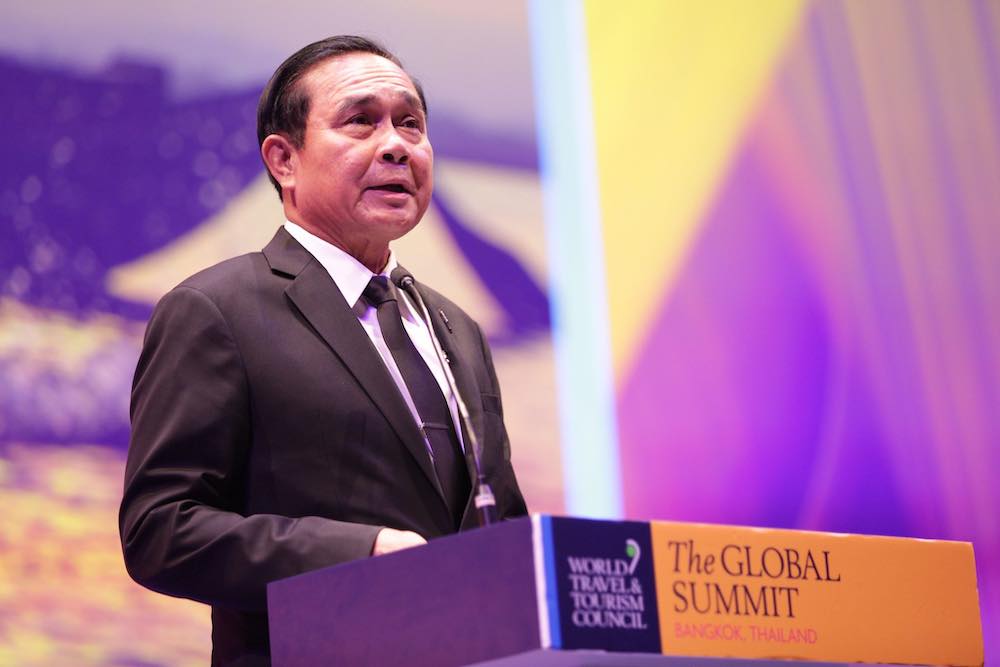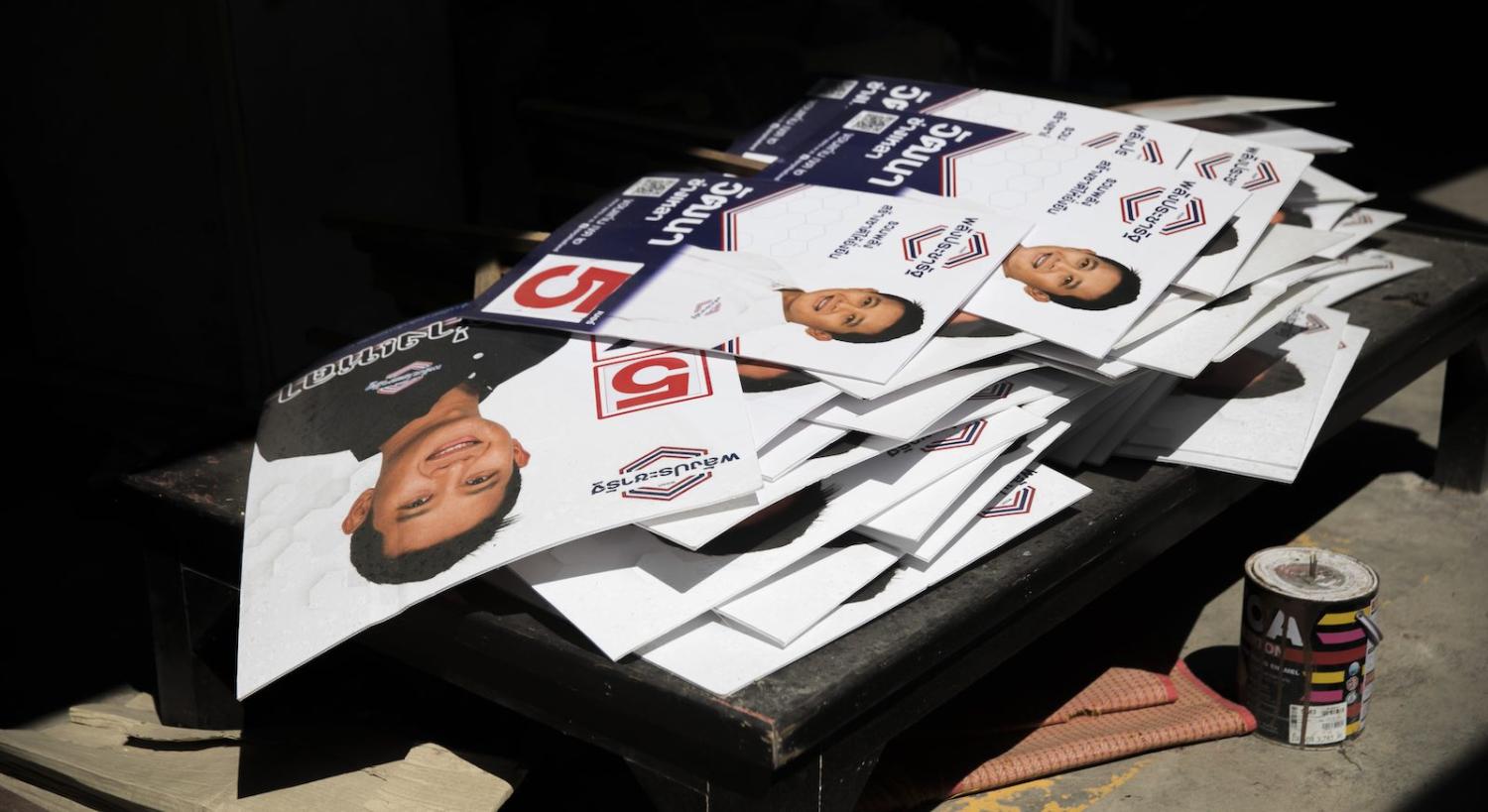As the dust settles in Thailand’s first election since a military coup in 2014, it appears that far from resolving the country’s perpetual political crisis, the election will only further contribute to instability.
The military, which contested the 24 March election under the newly formed Phalang Pracharat Party, intentionally designed the electoral system in order to retain power despite lacking popular support. Current regime leader General Prayut Chan-o-cha rebranded himself as a politician in order to enter the fray as Phalang Pracharat’s prime ministerial candidate.
Pheu Thai is claiming that its coalition has enough seats form a majority in the National Assembly but not enough to overcome the rigged electoral system.
Since 2001, political heavyweight Thaksin Shinawatra or his allies have won every single election, only to be repeatedly removed from power through military force or the politically compromised Constitutional Council.
This election was no different. Initial results showed that the Pheu Thai Party – a proxy for the now-exiled Shinawatra – won the most seats. Along with other pro-democracy parties, Pheu Thai is claiming that its coalition has enough seats form a majority in the National Assembly but not enough to overcome the rigged electoral system.
In addition to the democratically elected 500-seat National Assembly, the military’s latest Constitution adds a 250-seat Senate appointed by the current regime. The Senate and National Assembly both vote on the next prime minister, essentially giving Chan-o-cha a massive head start. Even with a slight majority in the National Assembly, Pheu Thai’s coalition wouldn’t be able to select Thailand’s next leader.
Days before the election, Human Rights Watch issued a statement condemning various “structural flaws” present in the polling process. Brad Adams, head of HRW’s Asia division, was blunt:
Since the 2014 coup, the Thai military has made repeated promises to restore democratic rule, but the generals have set up this election to ensure continued military rule in suits instead of uniforms.
HRW criticised the creation of the military appointed Senate, the dissolution of one pro-democracy party, repressive speech and media laws, politically motivated charges against opposition leaders, and a biased election committee.
Aside from the obviously stacked Senate, the current regime also thwarted Thaksin’s return to power by dissolving one of his allied parties. Thai Raksa Chart was prepared to run in certain constituencies where Pheu Thai wasn’t registered with the understanding that the two closely aligned parties would form a coalition.
Soon after the election, the Pheu Thai party announced that it will form a 255-seat coalition with six other pro-democracy parties, including the newly formed Future Forward Party, which has proven to be immensely popular with young voters.
Phalang Pracharat also seems to have done quite well; winning around 119 seats and paving the way for general Prayut Chan-o-cha to remain in power that with the support of the Senate.
The result would then be a prime minister from a different party than the majority in parliament, guaranteeing political deadlock and an ineffectual government.

But even more controversial possibilities are emerging.
Phalang Pracharat’s strong showing was marred by widespread reports of election irregularities, including some areas where the total number of ballots cast exceeded the number of voters. Over five per cent of the total ballots cast were invalidated – meaning over 2 million votes won’t count. The United Kingdom and European Union both urged the Thai government to swiftly and transparently investigate these issues.
The Election Commission repeatedly delayed the announcement of official preliminary results, even removing figures from its website after discrepancies were found, leading many to wonder if the election will be outright stolen.
The Asian Network for Free Elections (Anfrel) reported that domestic election observers only watched 10% of the polling stations and criticised the Election Committee for a lack of transparency. As the Anfrel report said:
In addition to at times inadequate information about how to file complaints, transparency about the number and progress of cases filed has not been made readily available.
The military still has a few cards left in hand to continue repressing pro-democracy parties even after the election.
Thanathorn Jungrungreangkit, the charismatic leader of the Future Forward Party, still has potential criminal charges dangling over his head. A court was supposed to decide whether to indict him for criticising the junta on 27 March, but has delayed that decision until next month. The threat of these obviously politically motivated charges could be used to blackmail or intimidate Thanathorn, or even to remove him from the political arena entirely if necessary.
Most notably, the new Thai Constitution introduced by the junta requires that any subsequent government follow the junta’s 20-year plan for the country. This requirement not only severely restricts any new government, but also gives the military a justification to launch future coups.
Chan-o-cha and the military couldn’t realistically expect to win the election outright, instead settling for retaining power without a mandate or popular legitimacy. But, with official results not due until May, the regime has plenty of time for further mischief.
In the weeks to come the main question facing the country is whether the current regime will allow the opposition to form a coalition in the National Assembly – preserving a semblance of democracy but leaving the government weak and gridlocked – or simply fabricate the results entirely.

